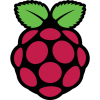RasPi News

-
Introducing our new ‘Programming with AI’ unit
In the age of AI, we believe kids still need to learn to code. We’re also testing how AI tools can be used to help with teaching and learning programming. This blog dives into our new classroom unit ‘Programming with AI’, which we’ve developed for teachers to introduce students to learning to code using tools…
The post Introducing our new ‘Programming with AI’ unit appeared first on Raspberry Pi Foundation.
-
Astro Pi is 10: A decade of your code in space
Today, we are marking the 10th anniversary of the European Astro Pi Challenge. At 11:03 on 15 December 2015, former ESA Astronaut Tim Peake launched from Baikonur cosmodrome in Kazakhstan on a Soyuz rocket as part of his UK Space agency ‘Principia’ mission to the International Space Station (ISS). Two Raspberry Pi-powered Astro Pi Mark…
The post Astro Pi is 10: A decade of your code in space appeared first on Raspberry Pi Foundation.
-
2025 highlights from the Raspberry Pi Computing Education Research Centre
It’s been over a year since I last wrote an update on this blog about our research and as we’ve just published our 2025 Annual Report, this is an ideal opportunity to share what we’ve been working on at the Raspberry Pi Computing Education Research Centre. We are a research centre based in the Department…
The post 2025 highlights from the Raspberry Pi Computing Education Research Centre appeared first on Raspberry Pi Foundation.
-
From learners to leaders: Jayantika and Ruturaj’s journey as Code Club youth mentors
Two remarkable teenagers from Pune in the state of Maharashtra, India — Jayantika (age 16) and Ruturaj (age 14) — have turned curiosity into community impact. With support from the Bidkar Foundation and the Raspberry Pi Foundation, they now help run five Code Clubs, reaching over 200 young people in rural areas of Pune. Along…
The post From learners to leaders: Jayantika and Ruturaj’s journey as Code Club youth mentors appeared first on Raspberry Pi Foundation.
-
Secondary school maths showing that AI systems don’t think
At a time when many young people are using AI for personal and learning purposes, schools are trying to figure out what to teach about AI and how (find out more in this summer 2025 data about young people’s usage of AI in the UK). One aspect of this is how technical we should get…
The post Secondary school maths showing that AI systems don’t think appeared first on Raspberry Pi Foundation.




